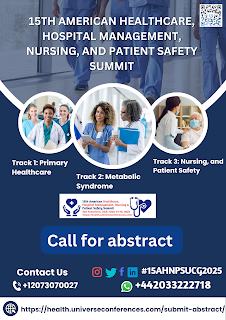What is Prostate Cancer?
Prostate cancer is a type of cancer that develops in the prostate. In males, the prostate is a small walnut-shaped gland that generates seminal fluid, which nourishes and transports sperm.
One of the most common types of cancer is prostate cancer. Many prostate
cancers grow slowly and are restricted to the prostate gland, where they may
not cause significant harm. While some types of prostate cancer develop slowly
and may require little or no therapy, others are aggressive and spread quickly.
Prostate cancer that is identified early, while it is still localized to the prostate gland, has the best chance of being treated successfully.
In the early stages of prostate cancer, there may be no signs or
symptoms.
More advanced prostate cancer can produce symptoms such as: • Trouble
urinating • Decreased force in the stream of urine • Blood in the urine • Blood
in the sperm • Bone pain • Loss of weight without trying • Erectile dysfunction
It is unknown what causes prostate cancer.
Doctors understand that prostate cancer originates when cells in the
prostate undergo DNA alterations. The DNA of a cell includes the instructions
that inform the cell what to do. The modifications instruct the cells to grow
and divide faster than normal ones. When other cells die, the aberrant ones
continue to live.
The accumulated aberrant cells form a tumor, which can spread and infect
surrounding tissue. Some aberrant cells may break away and spread (metastasize)
to other places of the body over time.
• Older age is one factor that can increase your risk of prostate cancer.
As you become older, your chances of developing prostate cancer rise. It is
most common after the age of 50.
• Race. Black persons are more likely than other races to develop
prostate cancer for unknown causes. Prostate cancer is more likely to be
aggressive or progressed in Black persons.
• A family tree. Your risk may be elevated if a blood related, such as a
parent, brother, or child, has been diagnosed with prostate cancer.
Furthermore, if you have a family history of breast cancer genes (BRCA1 or
BRCA2) or a very strong family history of breast cancer, your risk of prostate
cancer may be increased.
• Obesity. Obese people may have a higher risk of prostate cancer than
people of a healthy weight, while studies have yielded mixed results. Cancer is
more likely to be aggressive and to return after early treatment in obese
people.
Prostate cancer complications and
therapies include:
Cancer
that spreads (metastasizes):
Prostate cancer can spread to neighboring organs, such as your bladder,
or travel to your bones or other organs via your bloodstream or lymphatic
system. Pain and shattered bones can result from prostate cancer that has
spread to the bones. Prostate cancer that has spread to other parts of the body
may still react to treatment and be managed, but it is unlikely to be cured.
Urinary incontinence can be caused by both prostate cancer and its
therapy. Treatment for incontinence is determined by the kind, severity, and
possibility of improvement over time. Medication, catheters, and surgery are
all possible treatment options.
Prostate cancer and its therapies, such as surgery, radiation, or hormone
therapy, can cause erectile dysfunction. To treat erectile dysfunction,
medications, vacuum devices that aid in obtaining an erection, and surgery are
available.
Eat a balanced diet rich in fruits and
vegetables to minimize your risk of prostate cancer:
Consume a wide range of fruits, vegetables, and entire grains. Fruits and
vegetables provide a variety of vitamins and nutrients that can benefit your
health.
It is yet to be proven whether nutrition can help prevent prostate
cancer. However, eating a nutritious diet rich in fruits and vegetables might
improve your general health.
Choose nutritious meals over supplements:
No research has demonstrated that supplements can lower your risk of
prostate cancer. Instead, choose foods high in vitamins and minerals to help
your body maintain optimum vitamin levels.
Exercise most days of the week:
Exercise improves your general health, aids in weight maintenance, and
boosts your mood. Make an effort to exercise on most days of the week. If
you're new to fitness, start slowly and gradually increase your daily exercise
time.
If your present weight is healthy, aim to keep it that way by eating well
and exercising most days of the week. If you need to lose weight, increase your
workout and decrease your daily calorie intake. Consult your doctor for
assistance in developing a healthy weight loss strategy.
Discuss the increased risk of prostate
cancer with your doctor:
If you are at a high risk of developing prostate cancer, you and your
doctor may discuss medicines or other therapies to minimize your risk.
According to certain studies, taking 5-alpha reductase inhibitors such as
finasteride (Propecia, Proscar) and dutasteride (Avodart) may reduce the
overall chance of getting prostate cancer. These medications are used to treat
prostate enlargement and hair loss.
However, some evidence suggests that those
who use these treatments may be at a higher risk of developing a more dangerous
form of prostate cancer (high-grade prostate cancer). Consult your doctor if
you are concerned about your chance of acquiring prostate cancer.
Contact
Us:-
Reach out to us: https://breastcancerpathology.universeconferences.com/
Mail:
pathology@universeconferences.com| info@utilitarianconferences.com | breastcancer@ucgconferences.com
Whatsapp: +442033222718 Call: +12073070027
Previous
Blog Post Links:-
· https://kikoxp.com/posts/11632
· https://www.blogger.com/blog/post/edit/3238443600245550728/7246086302346767315
· 10th World Breast Pathology and Breast Cancer Conference |
LinkedIn
· https://wordpress.com/post/breastpath2022.wordpress.com/6
· https://medium.com/@elizaedwards2021/breast-cancer-disease-f0324f19b8a2
· https://www.blogger.com/blog/posts/3238443600245550728
· https://www.reddit.com/user/breastcancerucg1/comments/th0lj8/breast_cancer_disease/
· https://www.blogger.com/blog/post/edit/3238443600245550728/5272365125212681129
· https://kikoxp.com/posts/10351· https://www.quora.com/profile/BreastCancerUCGConferences/Breast-cancer-hysterectomy-and-removal-of-ovaries-and-tubes-Its-likely-that-people-who-have-been-diagnosed-with-brea
https://www.tumblr.com/dashboard
https://medium.com/@Andreaross01/breast-cancer-in-men-326a71409c5
https://www.linkedin.com/pulse/breast-cancer-men-dr-priya-pujhari
https://www.linkedin.com/pulse/breast-cancer-symptoms-causes-dr-priya-pujhari
https://www.blogger.com/blog/posts/7151158548968050254
.png)
.png)


Comments
Post a Comment